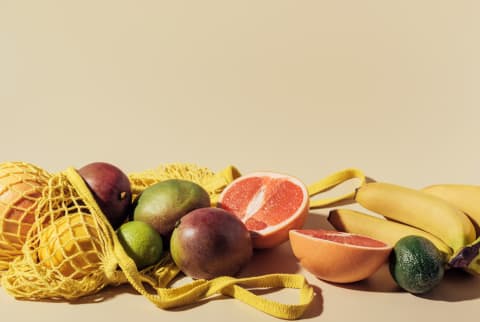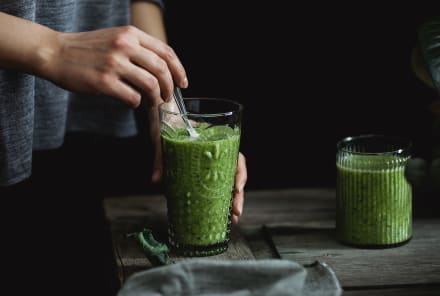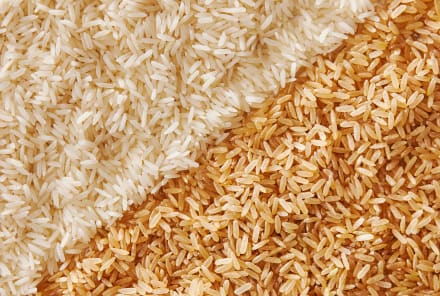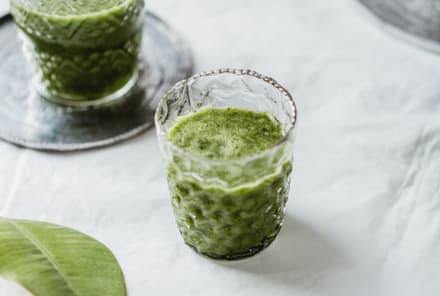Advertisement
Why This Longevity Expert Wants You To Eat "Stressed-Out" Foods


We tend to think of stress in terms of how we can evade it—much like anxiety and inflammation, stress is typically stamped with a negative connotation. And while stress management is a crucial pillar of overall well-being, it's chronic stress that becomes so worrisome—acute stress, on the other hand, isn't always harmful. In fact, a bit of physical stress on your body can actually be quite healthy (looking at you, intermittent fasting).
Same goes for the foods we eat: According to longevity expert and Harvard geneticist David Sinclair, Ph.D., food that faces a little bit of stress is actually healthier. "I look for organic foods, not because I'm scared as much of the pesticides—though that's important," he shares on the mindbodygreen podcast. "It's because organic foods aren't held with gloves. They're a little bit more stressed-out usually."
Why you should eat "stressed-out" foods.
You're probably thinking, Uh, how can I tell if my food is stressed? It's not like vegetables can come talk to us when they're feeling panicked (although emerging research suggests plants let out high-frequency sounds of angst). But it turns out plants do have a physical stress response: bright colors.
According to Sinclair, the more stressed out the food is, the brighter colors it will have. Those pigments, he continues, are evidence of defensive phytochemicals: "Those colors are actually an indicator of other molecules that plants produce to try and survive when they're stressed," he explains. "We call these xenohormetic molecules. Xeno just means 'between species,' and hormetic means 'what doesn't kill you makes you stronger.'" Essentially, those xenohormetic molecules make the plants more resilient (thus, increasing their longevity); when we consume those stressed-out plants, we're ingesting those healthy, resilient molecules as well. "It boosts these molecules that give our body that extra boost for longevity," Sinclair notes.
And according to research, the process also increases those plants' nutritional value: One study showed that "wounding" the leaves of plants the same way insects do (which, if you're a plant, is probably quite stressful) resulted in a higher concentration of antioxidant compounds1. That's not to say you should go stomping on your vegetable garden, but just know that natural stressors that occur more frequently in organic farming (like insects) might actually make the food more nutritious.
The takeaway.
In terms of which plants to choose, Sinclair has his own grocery list of favorites (he mentions baby broccoli, kale, and Brussels sprouts as his go-to's). Regardless, you might want to snag a few organic options at your local grocery store or farmers market, where the plants are brightly colored and full of longevity-supporting nutrients. Consider it a case for choosing the bruised apple in the bunch or the two-toned heirloom tomato. Imperfect? Maybe, but those "flaws" are what make them so nourishing.
Watch Next
Enjoy some of our favorite clips from classes
Enjoy some of our favorite clips from classes
What Is Meditation?
Mindfulness/Spirituality | Light Watkins
Box Breathing
Mindfulness/Spirituality | Gwen Dittmar
What Breathwork Can Address
Mindfulness/Spirituality | Gwen Dittmar
The 8 Limbs of Yoga - What is Asana?
Yoga | Caley Alyssa
Two Standing Postures to Open Up Tight Hips
Yoga | Caley Alyssa
How Plants Can Optimize Athletic Performance
Nutrition | Rich Roll
What to Eat Before a Workout
Nutrition | Rich Roll
How Ayurveda Helps Us Navigate Modern Life
Nutrition | Sahara Rose
Messages About Love & Relationships
Love & Relationships | Esther Perel
Love Languages
Love & Relationships | Esther Perel











